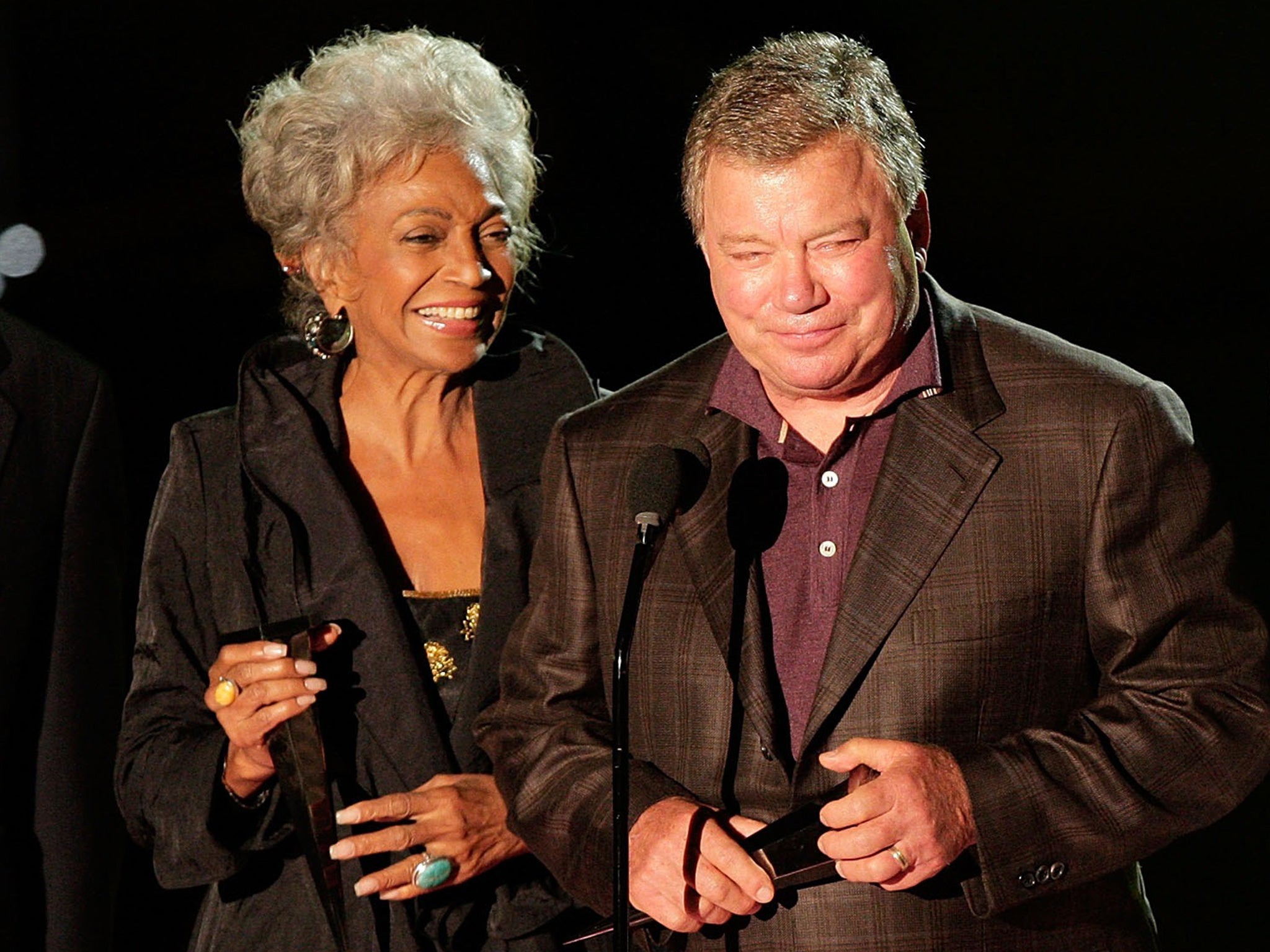TV's first inter-racial kiss took place six years before Star Trek's Captain Kirk and Lieutenant Uhura
Granada broadcast a play called You in Your Small Corner in June 1962

The world’s oldest example of an inter-racial kiss on a television show took place in a live play broadcast in Britain in 1962, researchers have established.
The kiss, between actors Lloyd Reckord and Elizabeth MacLennan, appeared in a play called You in Your Small Corner, which was shown on Granada TV in June of that year, The Guardian reported.
William Shatner and Nichelle Nichols are often credited with the first TV kiss as Captain Kirk and Lieutenant Uhura in Star Trek, but that episode was broadcast some six years later.
In addition to the kissing in the Granada play, there was also a post-coital scene.
Marcus Prince, a programmer at the British Film Institute (BFI) who found the footage, said the programme appeared to have been overlooked by social historians.
“I was astounded… it was so explicit really. I looked at the date and realised its significance,” he said.
“Nobody had really put the connection together that this looks like the first surviving example of a mixed-race relationship on television.”
The play, first performed on stage, centres on a young black man who is going to study at Cambridge University. He falls in love with a working-class white girl but his mother disapproves of their relationship. He gradually becomes ashamed of her because she cannot contend with his intellectual friends.
“It subverted what the viewing public of the time was expecting,” Mr Prince said.
At the time, the Coventry Evening Telegraph described the play, written by Barry Reckord, brother of Lloyd, as “intelligent, original and thought-provoking”.
Heather Stewart, creative director of the BFI, said it was a “ground-breaking” work.
“It demonstrates the role of progressive television drama as a reflection of our society and underlines the vital work of the BFI National Archive as the guardian of our national memory,” she said.
Join our commenting forum
Join thought-provoking conversations, follow other Independent readers and see their replies
Comments